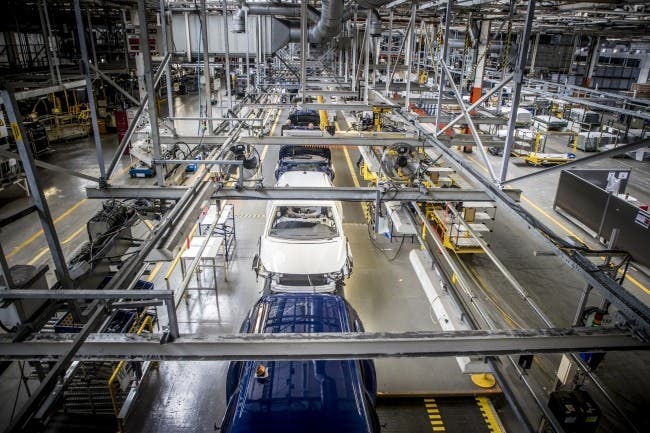The historic Stellantis commercial vehicle factory in Luton, UK, will close by June 2025. The decision was announced in November 2024 and marks the end of an era for automotive manufacturing in the city.
Luton commercial vehicle production closes
The historic Vauxhall factory in Luton, UK, is preparing to close. According to a BBC report, the closure of the Stellantis plant could take place as early as April, although the company has not yet officially confirmed this date. Full cessation of production is expected by June. Stellantis said production at Luton will cease in the second quarter of 2025, leaving room for a transition period to transfer machinery and manufacturing know-how. Meanwhile, production of the new range of mid-size electric light commercial vehicles (eK0) will begin at Ellesmere Port in the fourth quarter of 2026.
The decision to close the Luton plant comes at a delicate time for the automotive industry, struggling with the transition to electric. Just a few months ago, former Stellantis CEO Carlos Tavares expressed concerns about the British government’s Zero Emission Vehicle (ZEV) mandate. Tavares had criticized the requirement to sell increasing numbers of electric vehicles without adequate incentives for consumers, pointing out that this policy was jeopardizing the economic sustainability of the industry, which was already struggling due to declining demand for electric cars.
The closure of the Luton plant, however, will certainly have a significant impact on the local community, with the loss of many jobs. However, Stellantis has assured that it will work closely with employees and local authorities to best manage this transition. Moreover, for the automotive group, this is a significant and strategic change.

A strategic change for Stellantis
The closure of the Luton plant represents a significant turnaround for Stellantis, which has decided to concentrate UK commercial vehicle production at its Ellesmere Port plant. This change will allow the group to rationalize its resources and invest in new technologies and models.
Despite the Luton closure, Stellantis confirms its commitment to the United Kingdom, with the aim of strengthening its presence in the commercial vehicle market. Starting in October, in fact, production of models previously assembled in Luton will be transferred to the Ellesmere Port site in Merseyside.
Starting in April, all Luton machinery will be transferred to Ellesmere Port, where more than £50 million will be invested to upgrade it and cope with the additional workload. Last year, this site began producing electric vehicles thanks to a £100 million investment.
Employment impact – Stellantis facing union criticism
As anticipated, the Luton closure puts 1100 jobs at risk, with only a few hundred roles being transferred to Ellesmere Port, Stellantis said. Consultation has been initiated with affected workers, who have been offered retraining opportunities or, potentially, jobs at nearby companies.
After the November announcement, union leaders asked Stellantis to review its decision, criticizing the “failed strategy” of former CEO Carlos Tavares. In response, Stellantis pledged to “continue ongoing projects” under the leadership of President John Elkann and an executive committee.

